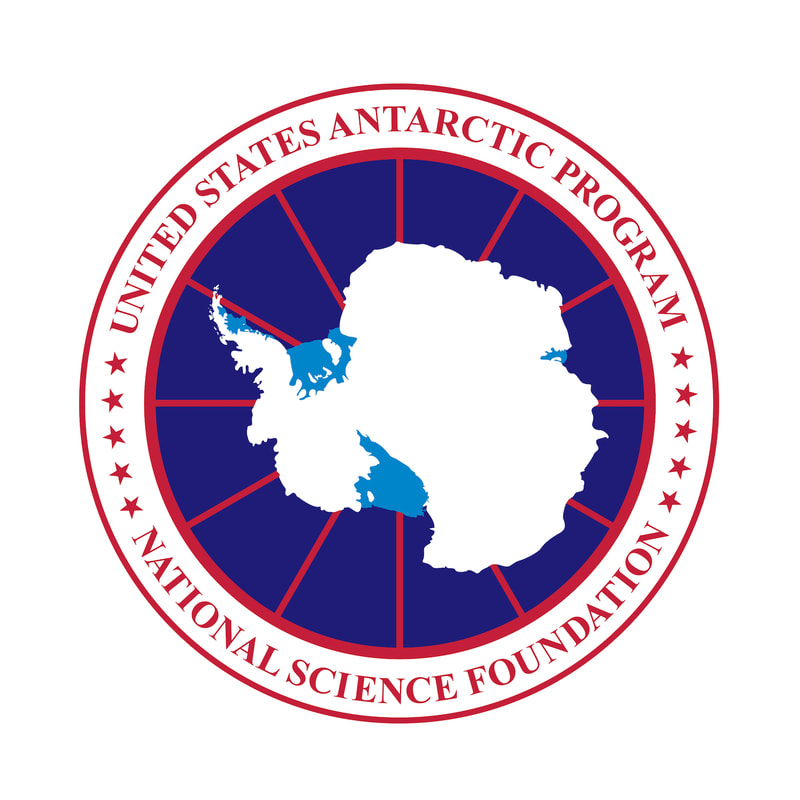|
Weddell seals are the southernmost mammal! These incredible animals can dive hundreds of meters deep and stay underwater for a maximum of 1.5 hours! They make the most amazing sounds - kind of laser like! You just need to put an ear on the ice to hear them. Curious? Please click here for an example:
https://www.antarctica.gov.au/site/assets/files/60740/call2.mp3 Weddell moms make milk that is fatty: over half of the milk is fat! That is so the pups can grow fast. The mom will barely hunt while feeding their pups. She will lose about a third of her weight by the end of the feeding period. Not only that, but the mother seal will provide a lot of iron to her pup - iron that she herself would need for diving (iron is important for hemoglobin - the oxygen provider in blood). With less iron, she can no longer dive as deep. Fortunately, by the time she can hunt again, their main food item, Antarctic krill, will be more abundant and at shallower depths. There will be more krill then, because their own food, phytoplankton (microscopic "plants"), will have had time to grow during the summer when light and temperatures are highest. So, the timing of higher krill abundance is great for the seals - The question is: how will climate change affect it? That is one of the many questions that Dr. Jenn Burns studies - our Chair of the Texas Tech Department of Biological Sciences.
0 Comments
Leave a Reply. |
About meGrowing up watching nature documentaries, I find myself now immersed in nature's splendor. As an ecologist I study how ecosystems function. Here I share with you my love of doing research in Antarctica - a place of sheer beauty Older posts
March 2023
|


